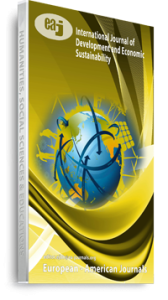Most countries in Africa have undertaken significant steps to attract FDI by adopted FDI-specific regulatory frameworks to support their investment related objectives. Thus, this study investigates the determinants of FDI in sixteen countries in West African by empirically examining the influence of growth rate of GDP in all the sixteen countries; GDP per capita; government policy in attracting foreign investors; infrastructural development; openness of the economy to trade; inflation rate; natural resources, official exchange rate and labour availability. Panel data were used because of its advantage over OLS and because it is better use in cross-country regressions. An important implication of the empirical result is that FDI in West Africa is mainly affected by natural resources and labour availability, GDP per capita which is used as a proxy for capital-labour endowment, Market size of the countries proxy by GDP growth rate and official exchange rate. The rule of thumb regarding the issue of FDI in West Africa sub-region suggests that the sub-region can be the top receipt in Africa in the next decade if other countries discover resources available in their countries
Keywords: Eclectic Paradigm, FDI inflows, Panel Data, West Africa countries

